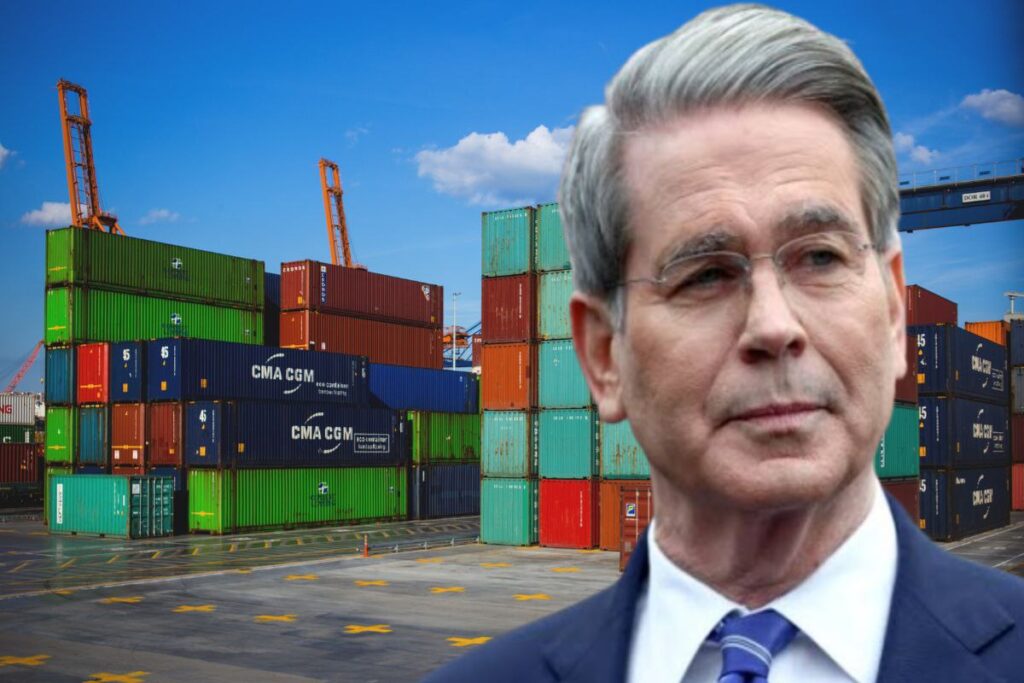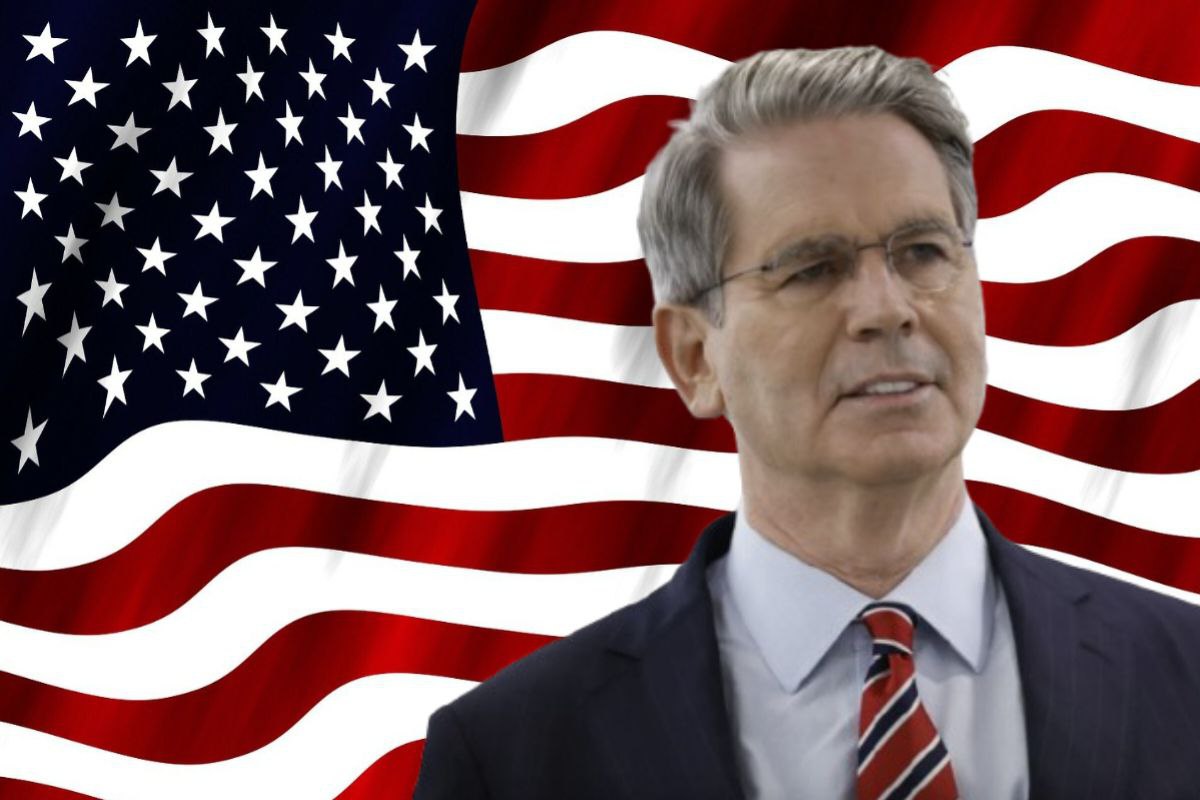U.S. Treasury Secretary Scott Bessent outlines the Trump administration’s aggressive economic agenda in an in-depth interview, highlighting a record-breaking capex boom, massive AI-driven investment, and a strategic use of tariffs for both trade and geopolitical leverage. He discusses ongoing talks with China, potential sanctions on Russian oil buyers, and the sharp rise in tariff revenues driving a rare budget surplus.
Treasury Secretary Scott Bessent Says US Aims To $300 Billion In Tariffs Revenue This Year
In a wide-ranging interview with Maria Bartiromo, U.S. Treasury Secretary Scott Bessent discussed the resurgence in business investment across the United States, growing geopolitical leverage through tariffs, and the path ahead for negotiations with China and other global trade partners. He also confirmed substantial tariff revenue and highlighted the structural reforms under President Trump’s second administration aimed at reshaping America’s economic landscape.
Scott Bessent On Tariffs :A Capital Expenditure Boom Not Seen Since the 90s
Bessent confirmed that business investment in America is now growing at the fastest pace since 1997. Equipment production is up 17% year-on-year, signaling a significant revival in capital expenditure (capex). According to Bessent, this momentum is driven by a confluence of policy and technology:
The Trump administration’s “Big Beautiful Bill” has introduced retroactive full expensing for equipment and factory investments.
New tariff structures are incentivizing companies to shift supply chains back to American soil.
A deregulated environment is easing long-standing bottlenecks in permitting for energy, infrastructure, and manufacturing projects.
“We’re making it possible to build things in America again,” Bessent emphasized, referencing streamlined permit timelines from agencies like the EPA and Department of Energy. He underscored how long-term investments and productivity growth are essential for sustained national prosperity.
Scott Bessent On Tariffs:AI and Manufacturing Drive Investment Across America
Bessent noted the unique moment where artificial intelligence and traditional industries like steel are simultaneously booming. He cited Pittsburgh as an emerging hub for both sectors — hosting both the U.S. Steel–Nippon Steel investment announcement and an AI summit within weeks of each other. Universities, energy access, and manufacturing infrastructure are all combining to make American cities like Pittsburgh global innovation centers.
He credited the current AI wave as a defining industrial moment, potentially a fourth or fifth industrial revolution. Demand is being driven by the hyperscalers — tech giants building AI supercomputing infrastructure at unprecedented scale.
Scott Bessent On Tariffs:Trade Policy, China Talks, and Sanctions
On trade, Bessent outlined a two-track approach: one for reciprocal tariffs and another for geopolitical enforcement, including sanctions on sanctioned oil purchases. With the August 1 deadline approaching for a return to reciprocal tariffs globally, Bessent maintained it is a “pretty hard deadline.” Countries making meaningful progress may get flexibility, but the default is a return to April 2 tariff levels.
In the case of China, the specific trade deal expires on August 12. Bessent will meet with Chinese officials in Stockholm and is optimistic about negotiating an extension. He highlighted a shift in tone in U.S.–China relations — one he described as “constructive.”
He wants China to shift focus from manufacturing glut to consumer-led growth, encouraging economic rebalancing. Bessent argued that global economic stability would be strengthened if the U.S. led in manufacturing and China matured as a consumption economy.
Scott Bessent On Tariffs:Targeting Sanctioned Oil and Global Enforcement
Bessent confirmed that the Trump administration is working on a new bipartisan-supported mechanism to penalize nations buying sanctioned Russian oil. A proposed U.S. Senate bill would enforce a 100% tariff on countries engaging in such transactions, including China and India.
Bessent also stressed the need for European partners to match their rhetoric with action and warned that tough negotiations with the EU were on the horizon to achieve full G7 alignment.
“These are separate negotiation tracks,” he clarified, distinguishing between trade agreements and the broader effort to end the Russia–Ukraine conflict.
Scott Bessent On Tariffs:Tariffs Raising Substantial Revenue
As of July, Bessent said the U.S. Treasury is approaching $100 billion in tariff revenue this year, potentially reaching $300 billion on an annualized basis — about 1% of the U.S.’s $30 trillion GDP.
The month of June saw a budget surplus — a rare occurrence — which Bessent attributed to both increased revenue and lower expenditures. He expressed frustration that the Congressional Budget Office (CBO) doesn’t factor in this tariff income properly in long-term projections, but noted that even the CBO acknowledged a potential $2.8 trillion in revenue over 10 years.

Scott Bessent On Tariffs:Challenging the CBO’s Static Growth Assumptions
Responding to criticism that the Big Beautiful Bill could add $3.4 trillion to the deficit, Bessent argued that those figures don’t account for the economic lift from productivity and AI-driven growth. He predicted that growth with “a 3 in front of it” could emerge by the fourth quarter or early 2026, thanks to surging investment and technological transformation.
Scott Bessent’s remarks reflect a confident, strategic posture by the Trump administration — one focused on reshoring manufacturing, leveraging tariffs as both an economic and geopolitical tool, and betting on AI as the next big growth engine. As the August tariff deadlines approach, the administration is poised for critical negotiations that could reshape the global trade and security architecture.

